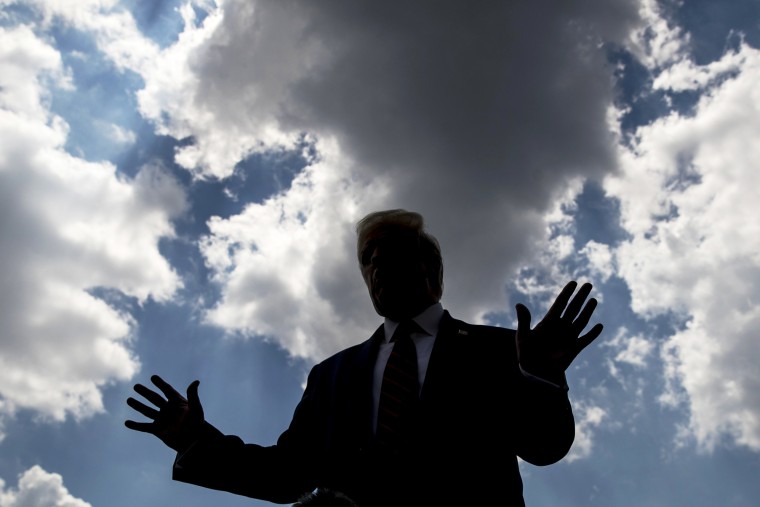When Donald Trump appeared at the Conservative Political Action Conference (CPAC) last weekend, the former president made the argument that his party is cohesive -- sort of.
"The Republican Party is united.... I think we have tremendous unity," Trump boasted. He quickly added, however, that the only thing standing in the way of true intra-party cohesion is the group of "establishment political hacks" in the nation's capital.
Late last week, the former president's lawyers sent the "establishment political hacks" an unexpected letter.
Attorneys for former President Donald Trump sent cease-and-desist letters Friday to three Republican organizations asking them to stop using the former president's name and likeness in fundraising appeals and merchandise, a Trump adviser said Saturday.... Politico was first to report the news.
At this point, the Republican Party is sorely lacking in national leaders. Indeed, the party is often derided as a "cult of personality" for a reason: it's national identity overlaps entirely with a former television personality who served one failed term as president, whom many Republican voters continue to revere to a creepy degree.
With that in mind, when the Republican National Committee, the National Republican Congressional Committee, and the National Republican Senate Committee send out fundraising appeals, they rely heavily -- if not exclusively -- on Trump's name and image to keep their base engaged, motivated, and reaching for their wallets.
Except, the former president no longer wants them to. The Republican Party has "tremendous unity," Trump says, unless the party tries to use him to solicit money for themselves.
Part of the pushback is likely because Trump wants the GOP base to give money to his political machine, not the party's. It's also likely that the former president believes entities such as the National Republican Congressional Committee and the National Republican Senate Committee will support incumbents whom he doesn't like.
As a practical matter, the cease-and-desist letters may not matter: Trump is a prominent public figure, and political organizations almost certainly don't need his permission to use his name and likeness in their fundraising appeals. Republicans frequently use House Speaker Nancy Pelosi in their solicitations, too, and there's not a whole lot the California Democrat can do about it.
But let's not lose sight of the larger context: Trump's feud with much of his party is an ongoing headache for Republican officials. Consider the former president's antics from the last few weeks:
- Trump issued a blistering statement attacking Senate Minority Leader Mitch McConnell (R-Ky.).
- Trump started intervening directly in GOP primaries, targeting Republican incumbents he doesn't like.
- Trump issued additional statements lashing out at Georgia Gov. Brian Kemp (R) and Karl Rove.
- Trump made his dissatisfaction with House Minority Leader Kevin McCarthy (R-Calif.) known (again).
- Trump appeared at CPAC, read a list of names of congressional Republicans, and declared, "Get rid of them all."
- Trump vowed anew to end incumbent Sen. Lisa Murkowski's (R-Alaska) career.
The former president's cease-and-desist letters to the Republican National Committee, the National Republican Congressional Committee, and the National Republican Senate Committee are striking, but they're also part of a recent pattern: Trump doesn't just intend to lead his party, he also intends to control it.

